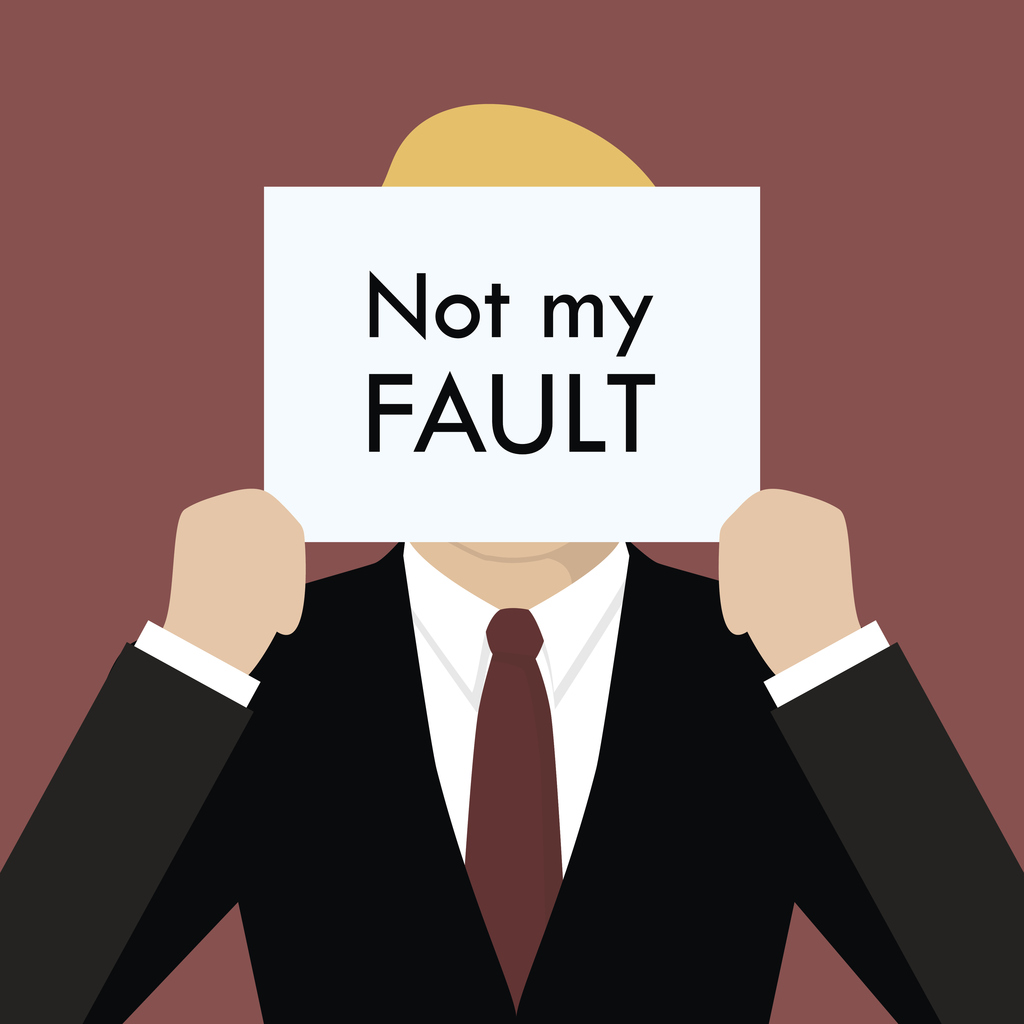
The coursework was done and only a few clinicals separated me from graduation. I knew I was so close to the finish line. However, one of those final clinicals was not what I wanted nor what I expected. There were a lot of aspects I didn’t like and I was unhappy with the placement. But, in a few months I would be done and it would all be in the past. I knew that the placement wasn’t somewhere that I would have chosen to work, so I let myself off the hook. I went in and just went through the motions.
I was stopped at red light on my home from Indianapolis on Labor Day. I was trying to come up with a topic for this week’s blog as Taylor Swift’s new single played for the third time (admittedly it was on repeat)… when suddenly it hit me. Literally, hit me. The car that approached my stationary Civic failed to stop in time. We were both fine, but it got me thinking about a concept from The Subtle Art of Not Giving a F*ck.
In Mark Manson’s book, he talks about fault and responsibility. Many things in life are not our fault. There are plenty of things that happen to us that we cannot control. However, while things may not be our fault, they still become our responsibility. While getting rear-ended was not my fault, getting my back bumper fixed is now my responsibility. Under no circumstance would I consider driving around with my dented bumper, I’m going to bring it in to get fixed.
And yet, in the case of my least favorite clinical, I essentially drove around with a broken back bumper. I decided that it wasn’t my fault I didn’t get a good clinical and my response was to put my head down and push through. I remember telling myself this wasn’t my decision so it isn’t my fault that I’m unhappy. By not taking responsibility, I prevented the clinical from being anything positive. It’s not my fault became my excuse for not taking action. What I should have done was accepted the placement, owned it, and then acted on it.
Own It
The clinical placement was not my choice, but everything following that point was. To change the outcome, I needed to accept the placement and then take responsibility for it. Instead, I spent the three months going through the motions and comparing my circumstance to all my classmates. It is like I knew I had been rear-ended, looked at all my classmates’ bumpers, and then just felt bad about mine. There is a tremendous amount of power in accepting something for what it is and doing everything possible to make it better. You get so much more from an experience when you own it.
Act on It
The benefit of taking responsibility even when something is not your fault is that it allows you to act. When you blame your misfortune on circumstance, you lose all power to improve the situation. I couldn’t improve my clinical because I had decided to blame the placement rather than take ownership of the opportunity. Sometimes we don’t even see an opportunity until we take responsibility. Things transform when we decide to fix the bumper even though it wasn’t our fault.
Sometimes insurance will even pay for a broken bumper, but you’ll never know unless you take responsibility and bring it in. The next time you’re unexpectedly rear-ended by something in your life or career, get the bumper fixed no matter what.
Are you driving anywhere with a broken bumper?